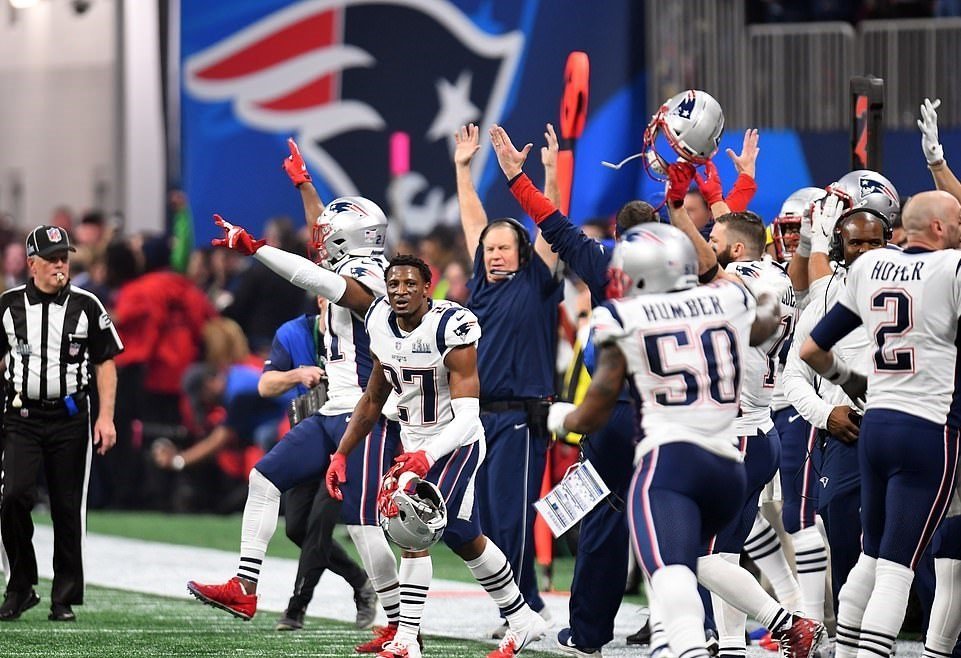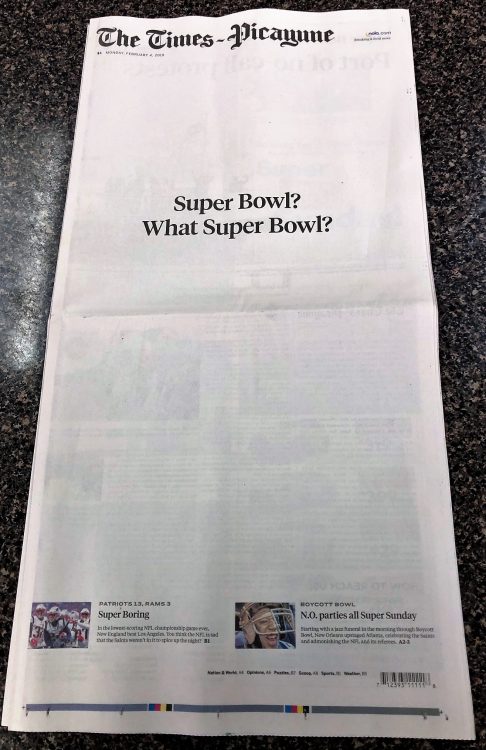It was the lowest scoring Super Bowl ever, a universally agreed upon snoozefest. The halftime show was forgettable. The commercials were tame.
The fans weren’t happy, and CBS paid the price as ratings dropped to an 11-year low.
The New England Patriots’ 13-3 victory over the Los Angeles Rams in Super Bowl LIII averaged 98.2 million viewers on CBS.
That’s a 5 percent decline from the previous year (103.39 million) and the smallest TV-only audience for a Super Bowl since 2008 — “smallest” being a relative term, as nothing else in the world of Nielsen-rated TV comes even within shouting distance of the Super Bowl.
The all-in average for Sunday’s game— including streaming on CBS, NFL and Verizon digital platforms and Spanish-language broadcast and streaming from ESPN Deportes — is 100.7 million.
The various streams had an average minute audience of 2.6 million, up from 2 million last year.
Streaming also accounted for a slightly larger percentage of the total audience: 2.6 percent vs. 1.9 percent a year ago.
Last five Super Bowl ratings:
- 2019: 44.9 (Pats-Rams, CBS)
- 2018: 47.4 (Eagles-Pats, NBC)
- 2017: 48.8 (Pats-Falcons, Fox)
- 2016: 49.0 (Broncos-Panthers, CBS)
- 2015: 49.7 (Pats-Seahawks, 49.7)
The lower rating was particularly noticeable in New Orleans, where the hometown Saints were cheated out of a chance to play in the championship game after a referee blew a call in the fourth quarter of the NFC title game.
The city drew a paltry 26 rating, half the number of last year and the lowest of of any market, and lowest ever, in New Orleans.
The local newspaper, the Times-Picayune, got in on the fun too.
“Super Bowl? What Super Bowl?” asked the front page of Monday’s edition, which was otherwise blank.
Fans in Kansas City, which lost to the Patriots in the A.F.C. championship game, were also turned off, though not nearly to the same extent.
Super Bowl ratings in Kansas City were down 11 percent compared to last year.
There was also some unknown number of people who boycotted the game because of what they view as the unfair treatment of Colin Kaepernick, the former San Francisco 49ers quarterback who has not been able to land even a backup job with an N.F.L. team the past two seasons.
Kaepernick became a controversial figure in 2016 when he began kneeling during the national anthem to bring attention to police brutality and other issues affecting minorities and economically disadvantaged people in America.
The Super Bowl is traditionally the most-watched television event of the year in the U.S., and its audience hasn’t dipped below 100 million since 2009.
The TV audience has been dwindling since its 2015 peak of 114.4 million.

